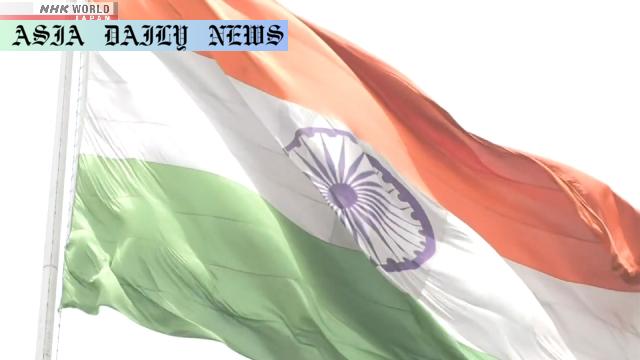Trade Tariffs: Trump accuses India of aiding Russia via oil profits, announces substantial tariff hikes amid rising tensions.
President Trump plans to increase trade tariffs on India.
Claims made about India profiting from Russian oil sales.
India refutes allegations, citing energy security needs.
Russian oil imports in India rose from 2% to over 30%.
The situation reflects tensions in global economic policies.

Escalating Tensions over Trade Tariffs
The ongoing tensions between the United States and India took a dramatic turn with President Donald Trump announcing a substantial increase in trade tariffs against the South Asian nation. At the heart of the dispute lies India’s growing reliance on Russian oil imports, which Trump alleges is financing Russia’s war in Ukraine. This conflict has thrust trade policies and geopolitical alliances into the spotlight, with both nations firmly standing their ground.
The US Perspective: A Pushback Against Russian Influence
President Trump, in a strongly worded statement, criticized India for purchasing ‘massive amounts’ of Russian oil and profiting from reselling it on the global market. Such actions, he claims, are indirectly fueling the Kremlin’s war efforts in Ukraine. Trump’s accusation underscores a broader US strategy to pressure nations worldwide to align against Russia by cutting economic ties. The planned tariff hikes are intended as a measure to influence India to reconsider its energy imports.
India’s Defense: Prioritizing National Interests
India has vehemently denied the allegations, describing them as unjustified and unreasonable. According to a statement from the Ministry of External Affairs, the import of Russian oil is a necessity dictated by the nation’s need to provide affordable energy to its citizens. With Russian imports now accounting for more than 30% of India’s energy supply, a sharp increase from 2% before the Ukraine conflict, these purchases are a critical component of the country’s energy grid. Indian officials have emphasized their commitment to safeguarding national interests and ensuring economic security amid shifting global dynamics.
The Changing Global Oil Market
The ongoing geopolitical unrest and rising tensions over energy dependencies reveal the complexities of the global oil market. With Western nations hesitant to purchase Russian oil due to sanctions, India has taken advantage of the discounted rates offered by Russia. However, this strategic move has brought challenges, as New Delhi defends its decisions on the global stage while balancing domestic energy requirements and foreign policy considerations.
The Broader Implications of US-India Trade Policies
This development highlights broader questions about the interplay between international trade, diplomacy, and economic needs. The US raised tariffs in the past to assert its dominance in trade relations, while India has historically sought to maintain neutrality in its foreign policies. If the proposed tariffs go into effect, it could affect not only the US-India economic partnership but the global trade ecosystem as well, particularly amidst already strained post-pandemic economic recovery.
A Call for Sustainable Dialogue in a Divided World
Both nations find themselves at a crossroads. While the US aims to restrict Russia’s global influence and economic revenue, India is determined to provide stability to its energy-dependant population. A sustainable resolution will require both countries to engage in constructive dialogue, with respect to each other’s priorities and concerns. Addressing these challenges will play a pivotal role in determining the nature of US-India relations for years to come.



Commentary
The Complexity of Geopolitical Trade Decisions
The ongoing tensions between the United States and India over trade tariffs reveal the complexities of modern geopolitics. A closer look at the situation shows how national interests can often clash with international partnerships. President Trump’s criticism of India’s purchase of Russian oil highlights the challenges of aligning economic priorities with global political alliances.
The Dilemma of Energy Security and Diplomacy
India’s defense of its energy imports as a necessity for domestic stability showcases the difficult decisions nations face. With energy costs playing a significant role in economic growth and societal well-being, countries like India must balance staggering domestic needs with international obligations. It is easy to critique these decisions from afar, but the realities of running a diverse and growing country require nuanced and thoughtful policies.
A Call for Thoughtful Global Dialogue
While the US’s intent to pressure nations into reducing ties with Russia is understandable given the Ukraine context, a unilateral approach may not yield the desired results. There is a critical need for open communication, mutual understanding, and sustainable solutions that prioritize global welfare over conflict. Trade decisions must consider long-term partnerships rather than immediate political gains.
The Road Ahead
As this story unfolds, it provides an opportunity for all nations involved to reflect on the importance of shared interests and the spirit of cooperation. Instead of escalating tensions through trade penalties, fostering dialogue based on mutual respect and practical solutions can benefit not just the involved parties but the global community as a whole. Let this situation be a learning moment for collaborative diplomacy in an interconnected world.